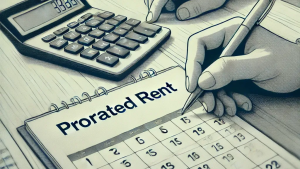The process of facilities management California is evolving rapidly, with the integration of technology, sustainability, and efficiency now taking center stage in the operation and management of buildings.
As California is at the forefront of environmental regulations and innovation, the facilities managers in the state face both challenges and opportunities unique to the state. By 2025, the trend is shifting toward smarter, greener, and more resilient management practices that not only guarantee a smooth operation but also increase property value in the long term.
The Shift Toward Sustainable Building Maintenance

California has been at the forefront in terms of environmental standards, and facilities management is not an exception. Facilities managers today have made sustainability a top priority for 2025, and CA building maintenance strategies have focused on energy and waste reduction.
The green push in operations is no longer a choice, whether it involves the installation of solar panels or the use of environmentally safe cleaning products. Facilities managers now have a mandate to harmonize their building operations with state standards, such as the Title 24 energy efficiency standard, as well as attract tenants who demand eco-friendly management. This movement not only minimizes environmental impact but also reduces operational costs, creating a win-win situation for property owners and residents.
Energy Efficiency as A Core Focus
One of the most significant operational costs in any property is energy consumption, and the emphasis on renewable energy in California has made efficiency the center of facilities management.
Bright lighting, sophisticated HVAC systems, and automated energy monitoring systems are becoming increasingly common, as they help ensure maximum energy efficiency and minimize costs. Facilities managers will also incorporate building energy management systems (BEMS) to provide real-time information, enabling the detection of inefficiencies and ensuring buildings comply with the stringent California energy requirements by 2025.
The state’s desire to become carbon-neutral is prompting managers to undertake proactive initiatives that emphasize clean energy, making facilities management a key stakeholder in California’s climate action agenda.
Digital Transformation and Automation
Facilities management California has undergone a revolution with the advent of the digital era, and in California, automation is setting new standards of efficiency. Technology is eliminating the need for facilities managers to estimate operations, and through smart thermostats and predictive maintenance devices, they can now operate with precision.
By 2025, with the emergence of artificial intelligence and the Internet of Things (IoT), it will be feasible to predict equipment leaks in advance, automate service requests, and even utilize digital channels to enhance the tenant experience.
This transition minimizes downtime, increases the lifespan of assets, and establishes a data-driven approach to operational construction. In California, facilities management is no longer about manual management; rather, it is about utilizing available technology as a strategic means of staying ahead.
The Rise of Smart Buildings
The fast-paced urban centers in California are experiencing the widespread usage of innovative building technologies, which are turning facilities management into one of the most strategically important functions.
Facilities managers are gaining real-time control over every building operation with smart buildings, which are equipped with IoT sensors, cloud-based monitoring, and automated access systems. Property owners are increasingly investing in such innovations, not only for the sake of convenience but also to enhance the satisfaction and security of their tenants in 2025.
Facilities managers play a crucial role in integrating these systems to establish seamless connectivity among building functions, security, and energy consumption. This trend highlights the growing importance of technologically qualified managers in the California market.
Safety and Compliance Remain Non-Negotiable
Although automation and sustainability trends are sweeping the field, safety and compliance continue to be at the center of facilities management practices in California. Facilities managers must ensure that properties comply with fire safety, ADA accessibility, and seismic preparedness regulations, which are governed by complex state and local building codes.
In 2025, compliance will be a proactive rather than a reactive process, and digital tools will assist managers in keeping track of inspections and safety reports, assuring that all protocols are up-to-date.
The Growing Importance of Tenant Experience

Facilities management is recognizing the importance of tenant satisfaction in California as a growing trend. Due to the competitive real estate markets in the state, facilities managers are required to provide more than just operational efficacy; they must also enhance the tenant experience.
This translates to quicker maintenance responses, open communication, and facilities that align with the expectations of tenants in 2025. Technology is also becoming increasingly crucial in this regard, and apps and portals enable tenants to submit requests, track progress, and receive real-time updates. Facilities managers who have focused on engaging tenants are enjoying high tenant retention and property value.
The Future of Facilities Management in California
Facilities management in California is expected to continue evolving into more innovative and effective practices in the future. As of 2025, facilities managers will no longer be solely responsible for maintaining facilities, but rather lead sustainability efforts, be technologically savvy, and manage relationships with tenants.
Stay ahead of the curve with Citadel Property Management Corp. Our team helps property owners in California embrace sustainable practices, improve energy efficiency, and implement smarter FM trends that save costs and boost value. Contact us today to future-proof your facilities management.
























